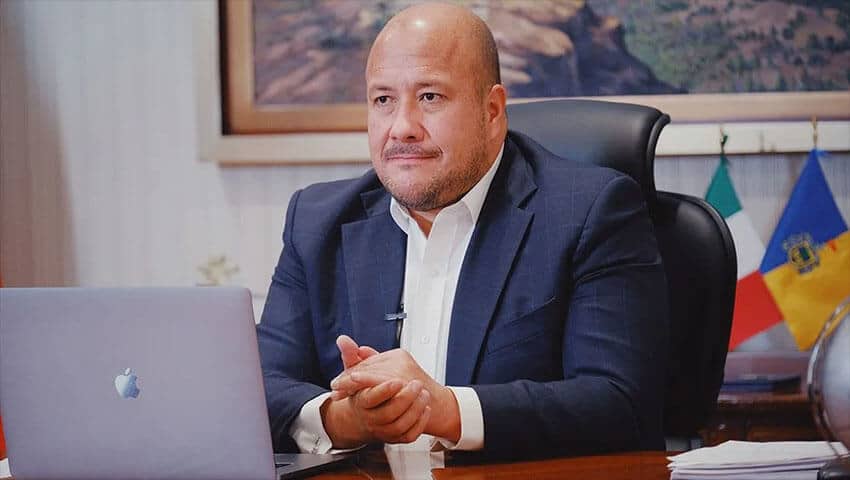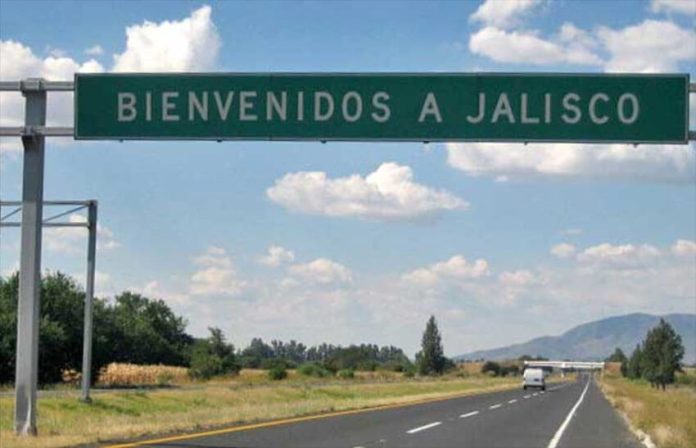If you want to know which stretches of highway to avoid in Jalisco, you’d be better served checking social media than looking at the United States government’s Mexico travel advisory, although doing the former might put you off travel altogether.
The U.S. Department of State’s current advisory says that violent crime and gang activity are common in parts of Jalisco and advises U.S. government employees that they must not travel within 12 miles (19 kilometers) of the Jalisco-Michoacán border, on Federal Highway 80 south of Cocula and on State Highway 544 between Mascota and San Sebastián del Oeste.
According to a report by the newspaper Informador, social media users have identified 14 other dangerous stretches of highway in Jalisco. A map published by Informador shows all 17 high risk stretches of highway. They are:
- State Highway 307 between San Cristóbal de la Barranca and Zacatecas.
- Federal Highway 23 between Guadalajara and Colotlán.
- Federal Highway 15 near La Barca, Tizapán and Tuxcueca.
- State Highway 215 between Jalostotitlán and Teocaltiche.
- Federal Highway 23 near Bolaños and the border with Zacatecas.
- State Highway 414 near Quitupan.
- Federal Highway 205 between Yahualica, Teocaltiche and Zacatecas.
- Federal Highway 54 near the Jalisco-Colima border.
- State Highway 429 between El Grullo and Ciudad Guzmán.
- The Guadalajara-Tepic highway (15D) in the stretch approaching Santa María del Oro, Nayarit.
- State Highway 205 near the border with Zacatecas.
- Federal Highway 80 between Cañadas de Obregón and San Juan de los Lagos.
- State Highway 405 near Mazamitla.
- The road between Chiquilistlán and Tapalpa.
- State Highway 604 between El Refugio and Ahualulco.
- State Highway 544 between Mascota and San Sebastián del Oeste. (The same highway continues to Puerto Vallarta.)
- Federal Highway 80 between Acatlán and Cocila.
Las carreteras en los límites entre #Jalisco y #Michoacán son señaladas como riesgosas por la presencia de grupos delictivos, y nosotros en una investigación especial que hoy publicamos en web y en la versión impresa hablamos y detectamos esto. https://t.co/WOBGhudbYy pic.twitter.com/rCrE5YV6ZX
— JALISCO (@informador_JAL) July 1, 2022
Informador also published the accounts of several motorists who have had frightening experiences on Jalisco highways. Josue’s pickup truck was stolen by armed men who cut him off with two vehicles when he was traveling to Michoacán from La Barca, a municipality near Lake Chapala.
“Eight men got out with AK-47s and handguns,” he said, adding that he was forced into one of their vehicles and taken to La Barca, where he was dropped off. “We saw two police vehicles [on the way to La Barca] and I thought there would be a shootout but … [the police] just let us pass.”
Tomás was traveling on State Highway 604 with his family when he was cut off by armed men. “Pointing their weapons at us they approached and asked us to identify ourselves. One of them recognized us and shouted that we were acquaintances. They got in their cars and left,” he said.
Julián, a motorcyclist, was traveling toward Yahualica when he was cut off by two pickup trucks on a bridge. “Armed men asked me where I was going. Then they said, ‘We suggest that you go back, for your own safety,’” he said.
The archbishop of Guadalajara and the bishop of Zacatecas also recently found themselves in scary situations while traveling in Jalisco. Both men were stopped at organized crime roadblocks in the north of the state.
“They demand you say where you’re coming from, where you’re going, what your job is, what you’re doing,” said Cardinal José Francisco Robles Ortega, the archbishop.
Zacatecas Bishop Sigifredo Noriega Barceló said it was the first time he had encountered an organized crime checkpoint.
“We were going from Huejuquilla to Tenzompa. … What struck me was that it wasn’t the National Guard or the army [who stopped us]. They were people from one of the crime groups. … “Of course fear is present. We take the [safety] measures that everyone takes [but] there’s no special protection [for bishops],” he said.

Despite evidence to the contrary, Jalisco Governor Enrique Alfaro asserted Tuesday that there are no organized crime checkpoints on the state’s highways. “Freedom of passage is guaranteed in this state,” he said. “There is no … roadblock on any highway in Jalisco, it’s as clear and blunt as that.”
Alfaro said he was surprised that Cardinal Robles chose to recount his experience to reporters rather than file a complaint with authorities. “We have profound respect [for the archbishop but] we’re very surprised he made a media statement and not a formal complaint,” the governor said.
Arturo Villarreal Palos, a University of Guadalajara security researcher, described Alfaro’s remarks as “unfortunate,” saying that he demonstrated a lack of empathy with Robles and other victims of highway violence, who often don’t report their experiences due to fear of repercussions.
The academic said the governor needs to acknowledge that a problem exists and work with federal authorities to stop it. Villarreal noted that criminal groups set up roadblocks both to demonstrate they have control of a particular area and to stop undesirables from entering.
Unofficial checkpoints can be found in many other states including Sinaloa, where reporters and officials were stopped by armed men while traveling to one of President López Obrador’s events during his tour of the northern state in May.
López Obrador subsequently said there are people in some parts of the country – “not just Sinaloa” – who think that they must “take care of a region” by stopping vehicles and ensuring that weapons aren’t brought in. He has rejected a United States government claim that criminal organizations control “ungoverned areas” that account for about one-third of Mexico’s territory.
With reports from Informador and Proceso
